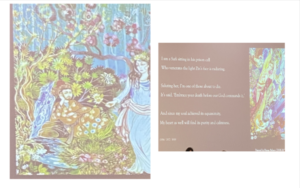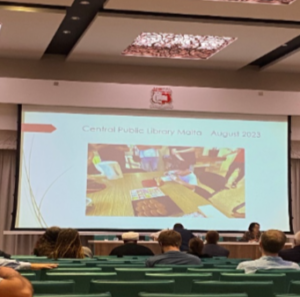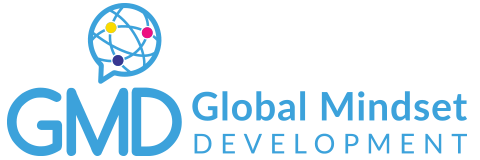Engaging the Contemporary: The Provocation of cultures
Hello everyone, I have just graduated from the University of Malta. With a background in Anthropology and Philosophy, I am always keen to explore new areas which can bridge the gaps between different contemporary topics. I had the occasion to participate in the Conference held between the 15th and 17th of November in Malta with the title: ‘Engaging the Contemporary 2023’. This year’s theme – the Provocation of cultures- sought to examine and bring to the fore the various issues that may rise from living in a multi-cultured world. The objective of the event was to gather several philosophical mores into a conversation that furthers our understanding of the provocations to and by culture(s) that we are beset with in our times.
Most of the speaker’s themes highlighted the significance of embracing inclusion within diversity. 0ne of the very first themes regarded Transcultural Counselling. In such practice it is essential that the counsellor maintains a detached attitude from any bias and prejudices to ensure empathy in the responses to the client conditions. Counsellors regularly attend supervision to guarantee the non-distortion of the therapeutic processes by biases and prejudices. In other words, by keeping their biases in check counsellors stimulate psychological well-being (Rogers 1951). A trans-cultural counsellor can work properly if he gets acquainted with his/herself and understands that clients from different cultures might already face many struggles in daily life. The idea of bypassing our biases is not only pertinent to the therapeutic space but also in our day-to-day life. In a multicultural society we are constantly challenged to see people as independent from their race, social, gender, religious conditions.
Yet this ideological bias is rarely questioned, since we tend to litigate. Communicating across cultures is often tied up with the difficulty of missing out what is going on. In this regard episodes of inauthentic communication occur on a daily basis provoking the performance of ‘the false self’ which is often discordant with the challenge of getting along with others. In such regard it is worthwhile mentioning J.P. Sartre’s example of ‘café waiter’, whereby Sartre summoned the existentialist idea of ‘bad faith’ through a waiter who acted a bit ‘too much like a waiter’. The provocation emphasises the conformity to mainstream values or rather on the resistance of those same values through ‘the false mask of the waiter’.
Love and Defiance: The Cultural Manifestation of Kurdish Resistance in Mem U Zin
The second speaker shed light on the traditional story of Mem U Zin, a national emblem who saved the traditional language of his country from the total extinction of assimilation. Skimming through the reading of this book one can catch the preservation of local literature and of a minority language. He chooses the Kurdish Language to make the Kurdish culture last in time. This timeless narrative shed light on the perseverance and on the endurance of people who have resisted the oppression of their minor language from global assimilation for centuries. Mem U Zin is a tale of love, adversity and sacrifice entanglements fused in the Kurdish history and culture. The protagonist serves as a compelling entity for the Kurd’s fight for cultural recognition and self-reliance. The objective derives from the significance of Mem u Zin’s story to the daily Kurdish population as well as its themes of love and resistance. Even now, tradition acts as an inspiration, despite the Kurds’ ongoing political fight and the marginalization of some cultures in several Middle Eastern countries. Mem u Zin is a powerful illustration of Kurdish perseverance in the Middle East and resilience in face of adversity.
Furthermore, the millions of Kurds who live abroad because of the Kurdish diaspora were compelled to leave their home country due to persecution, strife, and unrest. The Kurdish literature at the time was severely diminished as witnessed by the destruction of art, history, music. Their further state of illiteracy had a lasting effect on the Kurdish language and culture. Those factors have been vital in advancing and supporting the Kurdish political movements of Kurdistan. In Mem u Zin, Ahmed Khani’s notion of Kurdish liberation acknowledges Kurdish cultural and moral independence, with cultural recognition as the key to freedom. He implores for spiritual guidance, emphasizing that cultural autonomy is paramount to political sovereignty as it is rooted in a spiritual presence. The Kurdish dialect has been translated into many languages in order to preserve the language’s concept of good and bad.

Integrating Japanese culture into English Education for global talent development: Volunteering at the library
Another panel, from Tokyo University, was instead dedicated to the importance of celebrating Japanese education and assimilating it to other cultural systems of education for the development of global talent. According to the researcher of Tokyo, Globalization happens even with learning Japanese culture. The United Nations Educational, Scientific, and Cultural Organization agreed to register ‘washoku’, otherwise known as traditional Japanese cuisine, as an intangible cultural heritage, a social custom handed down from generation to generation that expresses Japanese people’s respect for nature. This study has increased interest in Japanese Food and matcha (Japanese tea). The Japanese tea ceremony would contribute:
- To foster intellectual practice for acquiring knowledge
- To refine one’s manners
- To be used as a spiritual component rooted in Zen teachings
- To foster a social dimension involving gatherings in tea rooms
- To induce a sense of relaxation
- To being an excellent subject matter for the means of ‘Cultivating Japanese Identity’.
The new approach would consider integrating the Tea Ceremony in English lessons. Learning Bonriaky Temae in English is a video where you learn Bonryaku Temae at the table. Bonryaku Temae is a basic tea preparation performed on an offering tray, typically one of the first learned in the Urasenke school. Following such application, research noticed how children were more likely to develop communication and leadership skill. The application of such ceremony into practice reinforced their language proficiency and cultural competence while fostering meaningful connection between the students and the children.
Tea Ceremony (japan-guide.com)

Outsiders within the classroom: Cultural Literacy and Intercultural Communication in Thai and Japanese Schools.
Moving across the Asian context, we jump to the topic of cultural literacy and Intercultural communication in Thai and Japanese schools. In particular the speakers from Kindai University illustrated the importance of teaching as a culturally laden activity. Often teachers are the products of the systems within which they enact their profession. This leads them to deeply comprehend the cultural schooling system. They acquire any kind of knowledge, rules, norms and values necessary in order to survive in that schooling context. The advance of globalization has brought with it the chance for people to learn new languages and consequently to move out from their indigenous region and to reach foreign lands. Within education in Asia in particular, teachers with high foreign language literacy are regarded as ‘experts’ to enhance foreigner language instruction. However, these teachers are not always products of the educational system within which they teach, leading to issues related to cultural literacy and intercultural communication. Making contributions of the Developmental Model of Intercultural Sensitivity, by Milton Dennett, the findings analysed issues in accordance to cultural literacy and intercultural communication for foreign teachers in two Asiatic countries: Thailand and Japan. The speakers highlighted the outcomes of interviews, presenting similarities and differences between the two groups and offer suggestions.
Methods and Research Questions:
1 Explore cultural issues experienced by foreign teachers. How teachers would appropriate an international language as English making it suitable and appropriate in the context of Japanese and Thai classrooms context. The three factors influencing English to be inserted in Japanese schools were: the influences of Neoliberal Ideologies with globalization, domestic educational reforms, and beliefs about how English as a foreign language should be taught.
- ii) Semi-structured Interviews
Interview questions based upon Chen and Starosta’s (2000) Intercultural Sensitivity Scale (ISS).
- iv) In 2021, there were 6129 foreign teachers working in schools in Thailand.
Filipino nationals (2667)
British (558)
American (465)
(Department of Employment, 2021)
- v) Results
- Intercultural Communication
- Japan: Navigating the school organization and reading (students writing ). In a lot of situations in Japanese schools, teachers push students to write by hand.
- dealing with handwritten confessions in Japanese (is difficult), can’t translate those using google translate.
The Thai educational system makes the most of cultural appreciation. In Thailand it is the norm for teachers to communicate with colleagues, especially foreigners. The communications occurring between the native teachers and the foreign teachers reiterate the social norms.
In Japan teachers move from one class to the other, and the alumni remain in the same class. The Japanese educational system is designed to recognize and identify unsuccessful students and through a prolonged process the individual needs of the student are assessed, and an individual learning program is drawn out. Moreover, no detention or punishment of any kind seem to be given to the students who fail. This proves the seeds of a culture willing to let their students thrive in any context.
Post-Modernism Dilemmas of Youths: New Education Methods and a Dynamic Understanding of Qur’anic Teachings
The post-modern age, with all its advancements, has not been able to satisfy the needs for spiritual and psychological well-being of the younger generations. Can the Qur’an play a positive role in contributing to the resolution of some of these moral dilemmas?
How can it contribute while maintaining its hierarchical authority over other authorities?
One must accept that certain postulates as granted and move forward, having espoused them for those who believe in that authority. However, for those issues it has addressed, the Qu’ran has shown special care and an intellectual and educational methodology, that is by presenting them in the form of dialogues as disputed matters.
What requirements must be fulfilled to adopt the workshop methodology?
First: It might be directly or indirectly related to practical life and current issues
Second: It must be controversial, presenting diverse opinions for discussion.
It must be comprehensible, allowing for re-examination through common sense and human intellect.
It should serve the objectives of discourse, being debatable and open to multiple perspectives. It should not directly conflict with NCL (Non -Contradiction Law) in Logical terminology; otherwise, it risks leading to intellectual insanity and confusion caused by fallacies and or paradoxes.
Global Guardianship: A Provocation to Multi-Culturalism?
The urgency to address the global ecological crisis arguably requires the existance of a global guardian- a constitutionally limited legitimate coercive global authority-capable of enforcing binding global agreements. The idea of a coercive global authority evokes the fear of a global Leviathan- ‘a soulless despotism’ according to Immanuel Kant or, in Hans Morgenthau’s words, ‘a totalitarian monster resting on feet of clay’. Multi-culturalism provokes or challenges the idea of global guardianship. There is the fear that the global guardian will be a world state of sorts, imposing uniformity of political and economic thought, and interfering excessively and illegitimately in people’s ways of life. There is a perceived tension between the need for an urgent, coordinated and global collective action to avert ecological catastrophe and multi-cultural values including the right for national self-determination. The aim of the paper, was to argue that the word is already featured by global homogenizing tendencies that erode multi-culturalism. Rather than stifle, the idea of global guardianship can ‘provoke’- ‘urge’ or ‘call forth’- states worldwide into calling for more effective and democratic forms of leadership which protect multi-cultural values and global pluralism.
QUOTE: ‘To tap into social imagination is to become able to break with what is supposedly fixed and finished, objectively and independently real…Doing so, a person may become freed to glimpse what might be, to form notions of what should be and what is not yet.
CONCLUSION: The aim of this article was to have summoned the most relatives’ subjects to the field of interculturality and embracing diversity within Inclusion. The Conference was conceived to highlight the mindset and philosophy behind the causes that provoke cultural clashes within a society.

Federica Pettinato


